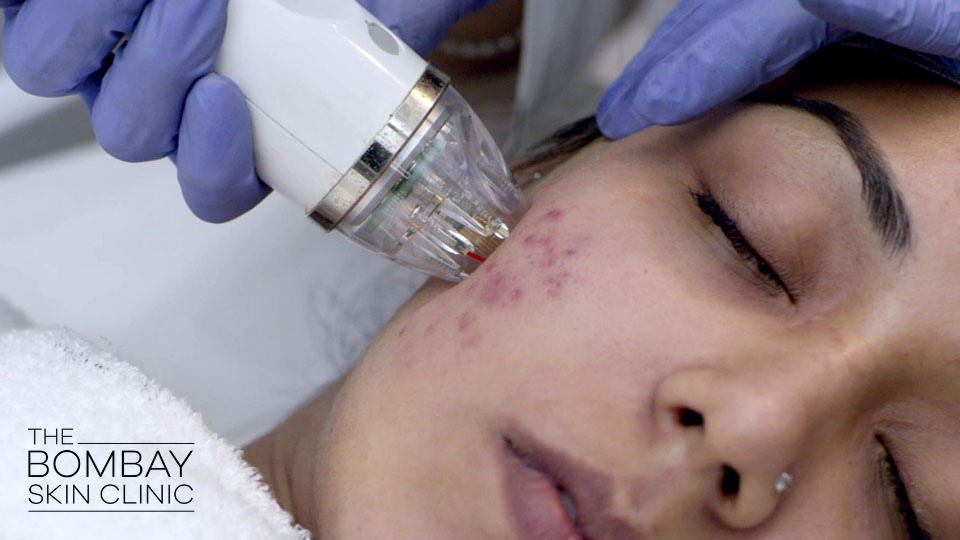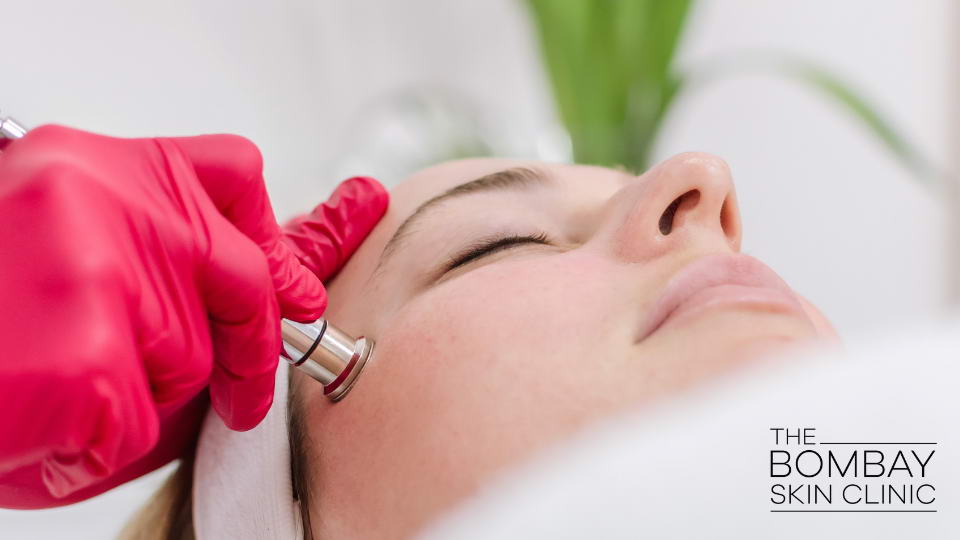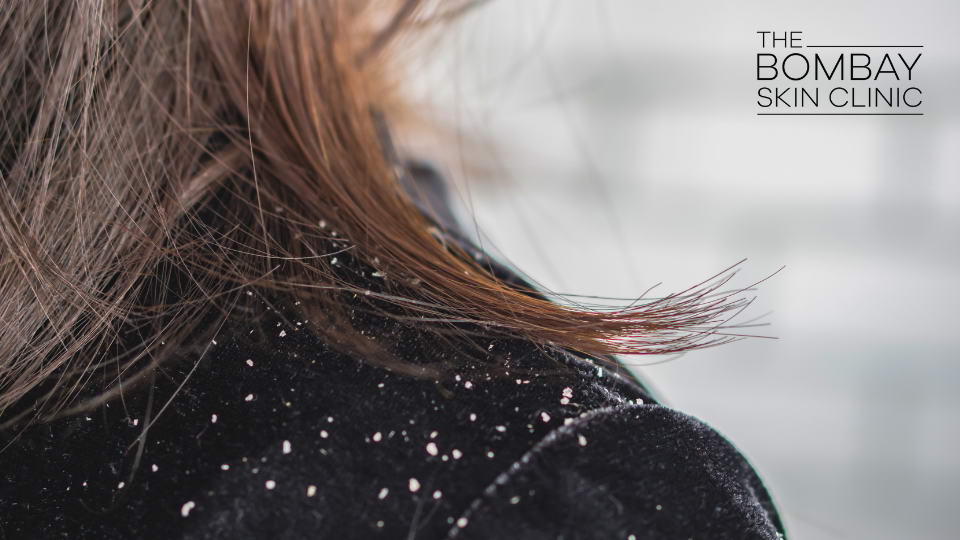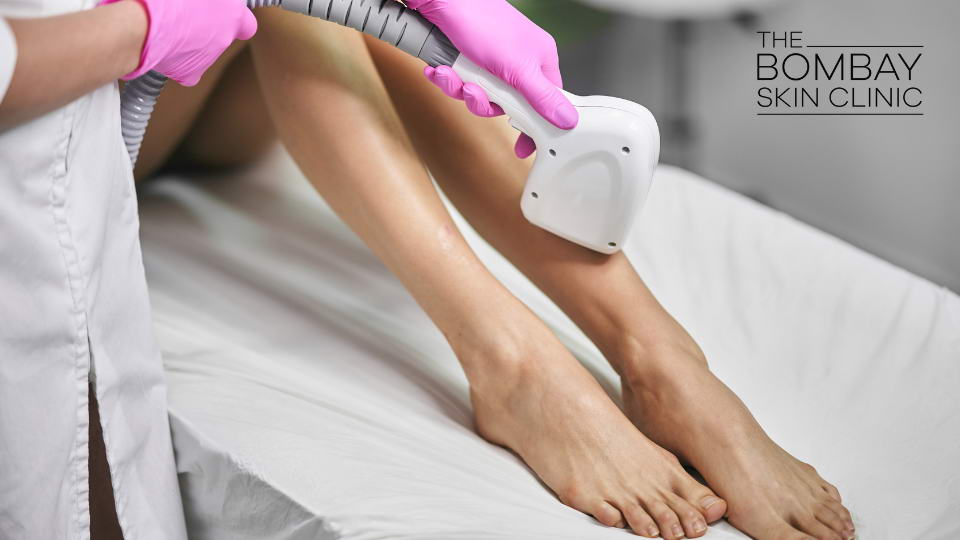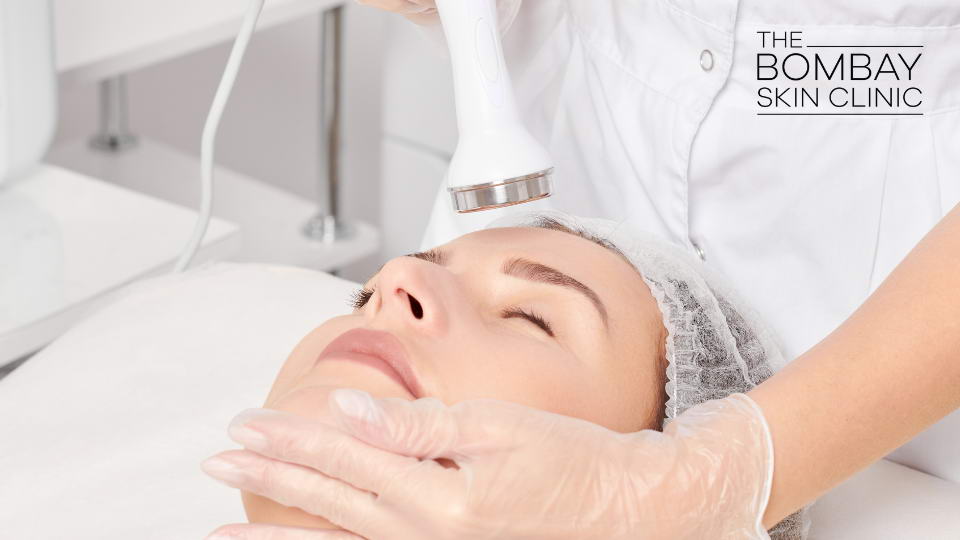Overview | Treatments at The Bombay Skin Clinic | Risks and Results | Self-care and Ideal Candidates | Types of Acne Scars
Acne is something that almost everyone has to deal with at some point in their lives. According to the American Academy of Dermatology, acne is formed when dead skin cells and bacteria clog your skin pores. However, the real trouble starts when your body starts to produce too much or too little collagen during the healing process. When this happens, it leads to scars.
We, at The Bombay Skin Clinic, can understand how acne scars can be annoying and how they can affect your appearance. Luckily, there are plenty of acne scar treatment procedures that can help get clear, scar-free skin like lasers, Dermapen, injections, peels, fillers, and more.
Today, we will take you through these treatments offered by our clinic and also the fabulous results that so many of our patients have achieved.
Types of acne scar treatments
When it comes to treating acne scars, there are quite a few options available. At our clinic, dedicated dermatologists and specialists help you decide which procedure will be most effective for your case of acne scars and skin type.
- Injections – Different kinds of acne scars are best treated by using specific injections. For example, if you have raised scars, then Interferons and fluorouracil (5-FU) are two drugs that can help you. The dermatologist injects the appropriate drug into the targeted areas on your face to help even out the skin’s appearance and reduce acne scars. Still, this treatment is hardly ever recommended. There is no downtime required post-treatment and the discomfort is minimal. The one thing that you need to keep in mind about this treatment is that it requires multiple sessions. However, depending on the severity of your scars, the result might vary. Do note that this treatment is not routinely performed for acne scars on the face, but more for the scars on the back and chest or shoulder.
- PRP acne cure – Platelet-Rich Plasma (PRP) is one of the safest acne scar treatment options you can choose. Platelets are one of your blood compounds and they have incredible healing abilities. The platelets are collected by drawing blood from your arm and then separating its components using a processing machine. Then, the platelet plasma, which contains growth factors and stem cells, is injected into the areas of your face that are affected by acne scars. With time, the scars will start to heal naturally. PRP is often done with other treatments like laser and Microneedling RF treatment for the best results. There are no chances of side-effects or allergies as the plasma comes directly from your own body. At The Bombay Skin Clinic, we offer the Vampire Acne Scar PRP treatment. Our patients have reported seeing great results in a single session. The younger, tighter, and smoother skin developed truly reduces signs of acne scars.
- Subdermal minimal surgery technology – At The Bombay Skin Clinic, we offer thus subdermal minimal surgery technology by using a high-speed jet with hyaluronic molecules and pneumatic acceleration to penetrate the skin through micro-sized points in the epidermis. It spreads laterally on reaching the dermal layer and causes a subcision effect, or breaks the scar’s fibrous bands. These bands link the scar to the underlying subcutaneous tissue. After the scar tissue is released, the fibroblast cells form new connective tissue during collagen generation while the wound is healing. Generally, this technology is suitable for all skin types and to all acne scars with minimal downtime. It is also considered superior to other treatments like laser resurfacing or chemical peels where a larger area outside the scar is subjected to the treatment.
- Chemical peels – Some acne scars can be stubborn and very hard to remove. The best way to treat them is to peel off the upper layer of your skin. For this, chemical peels are used by to effectively remove the skin layer that is most effected by scars. There are a few different chemicals that can be used as the main peel ingredient. Our experienced dermatologists choose the right option for you after studying your acne scars, skin type, and medical condition. We strongly suggest that you do not use chemical peels sold for home use. They are not as effective and can have potentially harmful side-effects.
At Bombay Skin Clinic, we offer a handpicked selection of chemical peels to rejuvenate and resurface the skin, improving its texture and smoothness. The most common types of peels our patients opt for include Mandelic acid, Glycolic acid, Salicylic acid, Yellow, and Black peels. Do note that chemical peels work only for very superficial acne scars and always work in combination with other treatments like subcision or microneedling. - Dermabrasion – Dermabrasion is a treatment for any kind of skin scars, which include acne scars, too. This is a skin peeling method that safely sands away the top-most layer of the skin of the affected areas. Once the old skin is removed, a healthier layer of skin takes its place; this new layer is noticeably smoother, better textured, and even. This non-invasive procedure calls for no downtime and the results seen by patients after a few weeks are truly stunning. However, with this treatment, only very superficial scars can be treated.
With the newer laser and microneedling treatments, dermabrasion has lost its popularity. Sometimes aggressive, dermabrasion can leave the skin damaged and irritated. Even though the process is rather harmless, you should only opt for it performed by a professional dermatologist. It involves operating a high-speed instrument with a rough wheel or brush, so skill and experience is required in using it. - Dermapen – According to MedlinePlus by the National Institutes of Health, your face, chest, neck, and back are often the most affected areas by acne scars. The Dermapen can help you effectively and safely treat them. This is a microneedling hand-held device used to puncture the upper and inner layers of the skin affected by acne scars. Your body has the ability to heal itself, and as soon as the punctures are made, that healing process starts to perform its wonders with the production of collagen. With time, the scars naturally start to heal.
At the Bombay Skin Clinic, we make use of the Dermapen 4. It is a handheld device that creates fractional micro channels in the skin to break up the scar tissue. The AOVN technology of the Dermapen 4 calibrates the motor speed, penetration, and pressure automatically on the targeted area with care and precision. Our patients have hailed this treatment for giving clearer, firmer skin. - Laser treatment – The laser procedure is another skin peeling treatment, but it is fundamentally different from the other such therapies. While most peeling techniques use chemicals, the laser treatment uses laser technology to resurface the healthier layer of your skin. The three types of lasers used to treat acne scars are fractionated lasers like MnRF, erbium laser, and ablative laser CO2. The laser is applied on the scars to effectively remove the top layer of the skin to reveal the healthier layer below. The laser technology offers swift results. The erbium laser is useful for finer wrinkles and lines and the CO2 lasers are ideal for treating deep wrinkles, warts, and acne scars, while. Both lasers remove the outside layers of the skin. While the former pokes microscopic holes into deep layers of the skin to even out pitted acne scars, the latter promotes collagen remodeling.
At The Bombay Skin Clinic, we offer the Secret Micro-Needle Fractional RF system with minimal invasion micro-needles to deliver controlled RF energy directly into the depth of the skin. The treatment heats up the tissue and encourages new collagen production, promotes skin remodeling, and breaks down the scar tissue. We also use the Gold Toning laser, which reduces redness and subsides acne marks. With no downtime, this one-of-a-kind FDA-approved treatment has helped patients see a marked reduction in acne scars. - Dermal fillers – The dermal fillers acne scar treatment is a popular choice among people who want to effectively cure different types of skin disorders. The dermal fillers work on acne scars, too. For this procedure, your dermatologist inserts hyaluronic acid into the scarred areas of your face. This substance has the ability to hydrate and moisturize the skin, which improves the overall health of your skin. It starts to naturally heal the scars left behind by acne. Dermal fillers treatment needs to be administered at least twice a year to maintain the quality of your facial skin. At The Bombay Skin Clinic, we use only safe dermal fillers to help plump up your skin and reduce the appearance of acne scars. Our patients report seeing results almost instantly, and we recommend waiting for two weeks to see complete results and the full effect.
- Microneedling RF – Microneedling radiofrequency is known to be effective on acne scars as the procedure helps to cure them naturally. The treatment is performed with the help of a hand-held medical device with microneedles. The device is used by the dermatologist to make punctures on the upper layer of the skin while delivering controlled radiofrequency energy to it. This stimulates your body to produce collagen, which is a healing agent.
According to the Journal of Cutaneous and Aesthetic Surgery, this treatment is efficacious for moderate and severe acne scars. Every session shows favorable results and the number of sessions varies depending on the depth and type of the scar. We recommend at least four to six sessions for the scar treatment. At The Bombay Skin Clinic, the MNRF drive used is US FDA-approved. It is a revolutionary treatment called SECRET MNRF. Patients have reported seeing improved texture and firmer skin with noticeable scar reduction. This is a near–painless treatment with no side effects and no downtime required. - Subcision – This is a surgical acne scar treatment procedure. It uses a hypodermic needle that is inserted into the affected areas in order to break the fibrotic strands underneath your skin. This breaks the link between the underlying tissues and the depressed distensile or depressed bound down acne scars. The body starts to produce collagen in the treated areas to heal the scars and create more uniform skin. This treatment is performed in conjunction with any other treatment for acne scars to achieve a more successful outcome. Also known as subcutaneous incisional surgery, you may feel some pain or tenderness during the procedure. The results speak for themselves. However, they also depend on the severity of the scars and how effectively your body produces collagen.
Risks and expected results
At The Bombay Skin Clinic, we make sure that your acne scars are treated not only effectively but also safely. Hence, the chances of any side-effects are minimal. Some patients might go home with some tenderness, redness, and swelling, but these do not last for more than a few days. After the treatment, the scars start to get smaller and heal. Based on the treatment you have selected and your skin type, our experts will advise you on when you are likely to see results. If you want to know whether your scars can get better, then gaze into the mirror and stretch the skin near the acne scar. If the scar looks better when it is stretched, then an acne scar treatment can truly improve the skin. At The Bombay Skin Clinic, we examine the skin thoroughly and explain the outcome to our patients.
Number of sessions required
This depends largely on the severity of your scars, their type, and the responsiveness of your skin. The experienced doctors at our clinic can determine your specific requirements and inform you about the minimal number of sessions required for best results. Generally, for optimal results, two to six sessions are recommended.
Self-care for the future
After their treatments, we advise our patients to carefully look after your skin. You should change to a healthier diet, make sure your sunscreen lotion is oil-free and non-comedogenic, and regularly clean your face with a chemical-free, mild soap. Do not touch your face excessively or scrub it harshly. Avoid too much exposure to the sun to avoid irritation. Also, do not forget to keep following up with your doctor to make sure that your skin remains acne scar-free.
Ideal candidate
The acne scar treatment can be of many different types, and depending on the severity and type of scar you have, your dermatologist can suggest the right procedure. We generally do not recommend any of the aforementioned treatments for people still going through an active acne outbreak. People whose active acne has cleared are ideal candidates.
When to opt for acne scar treatment
If you notice that the acne scars have spread too much, it might be the right time to find a dermatologist. We understand that they can be irritating and cause you social anxiety or embarrassment. So, if you are uncomfortable with them, then you may get your acne scars treated as soon as possible. We do not recommend acne scars treatments for children, as these scars should be allowed to resolve on their own.
Types of acne scars
The type of acne scar treatment you require depends on the kind of scar you have. According to the Stanford Health Care website, there are mainly two types of them, depressed and raised.
- Depressed scars: Also known as atrophic scars, they form under the surrounding skin’s surface and are usually pitted, found on the face. There are three types of depressed scars. To start with, rolled scars are easy to treat. Then there are box scars, which require more sessions to treat their stubborn walls. Lastly, ice picks scars are the most difficult to treat.
- Raised scars: Also called hypertrophic or keloid scars, they are usually found on the chest or back and form above the surrounding skin’s surface.
Closing paragraph
Having acne scars can seriously impact your social life, especially when the scars on your face get deeper. If you are in low spirits due to this, without delaying further call our clinic to set an appointment with an experienced dermatologist. We can safely cure your troubles to help you go back to your confident, scar-free life.
References
- American Academy of Dermatology: https://www.aad.org/public/diseases/acne/causes/acne-causes
- MedlinePlus, National Institutes of Health: https://medlineplus.gov/acne.html
- Stanford Healthcare: https://stanfordhealthcare.org/medical-conditions/skin-hair-and-nails/acne-scars/types.html
- Journal of Cutaneous and Aesthetic Surgery: http://www.jcasonline.com/article.asp?issn=0974-2077;year=2014;volume=7;issue=2;spage=93;epage=97;aulast=Chandrashekar

